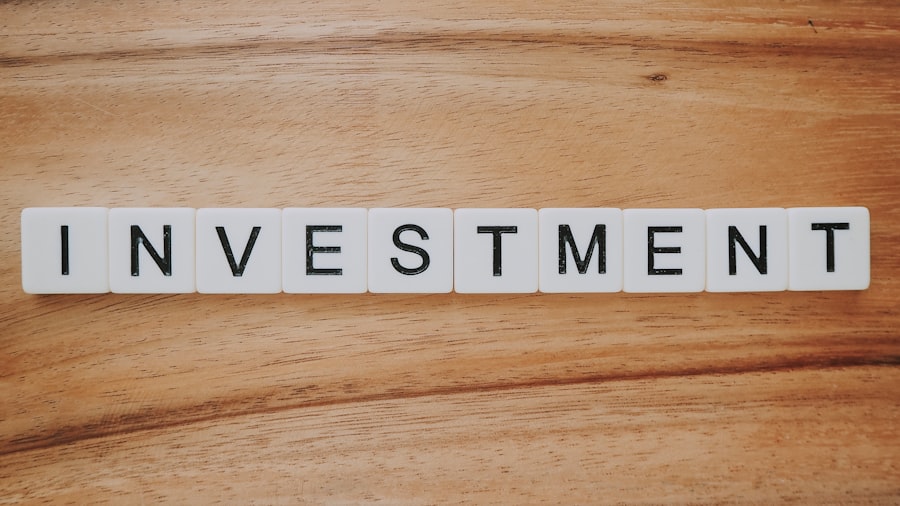In recent years, investment fraud has surged, becoming a significant concern for both novice and seasoned investors. With the rapid advancement of technology and the increasing accessibility of financial markets, fraudsters have found new avenues to exploit unsuspecting individuals. You may have noticed that the proliferation of online trading platforms and social media has made it easier for scammers to reach potential victims.
This rise in investment fraud is not merely a statistic; it represents a growing threat to your financial security and peace of mind. The COVID-19 pandemic further exacerbated this issue, as many people sought alternative income sources during economic uncertainty. Scammers capitalized on this vulnerability, creating elaborate schemes that promised high returns with little risk.
As you navigate the investment landscape, it’s crucial to be aware of these fraudulent activities and understand how they can impact your financial future. The more informed you are, the better equipped you will be to recognize and avoid potential scams.
Key Takeaways
- Investment fraud is on the rise, with scammers using increasingly sophisticated tactics to deceive investors.
- Common types of investment fraud include Ponzi schemes, pyramid schemes, pump and dump schemes, and affinity fraud.
- Signs of a fraudulent investment scheme include promises of high returns with little or no risk, pressure to invest quickly, and unregistered sellers or products.
- To protect yourself from investment fraud, research and verify investment opportunities, be wary of unsolicited offers, and seek advice from a trusted financial professional.
- Regulation plays a crucial role in preventing investment fraud, but it’s important for investors to remain vigilant and skeptical of potential scams.
Common Types of Investment Fraud
Investment fraud comes in various forms, each designed to deceive you into parting with your hard-earned money. One of the most prevalent types is Ponzi schemes, where returns to earlier investors are paid using the capital from newer investors rather than from profit earned by the operation of a legitimate business. You might be lured in by promises of high returns with minimal risk, only to find that the scheme collapses when new investments dwindle.
Another common type is pump-and-dump schemes, where fraudsters artificially inflate the price of a stock through false or misleading statements. Once the price has risen sufficiently, they sell their shares at a profit, leaving you with worthless stock. Additionally, there are affinity frauds that target specific groups, such as religious or ethnic communities, exploiting trust to gain access to your investments.
Understanding these common types of investment fraud can help you recognize red flags and protect your financial interests.
Signs of a Fraudulent Investment Scheme

Recognizing the signs of a fraudulent investment scheme is essential for safeguarding your finances. One major red flag is the promise of guaranteed returns. If an investment sounds too good to be true, it probably is.
You should be wary of any opportunity that guarantees profits with little or no risk involved. Legitimate investments always carry some level of risk, and understanding this principle is crucial for making informed decisions. Another warning sign is pressure tactics.
If you feel rushed to invest or are told that an opportunity is only available for a limited time, take a step back. Scammers often create a sense of urgency to prevent you from conducting thorough research. Additionally, be cautious if the investment lacks transparency or if the person promoting it is unwilling to provide clear information about how it works.
Trust your instincts; if something feels off, it’s worth investigating further before committing any funds.
How to Protect Yourself from Investment Fraud
| Protection Tips | Explanation |
|---|---|
| Research | Do thorough research on the investment opportunity and the company offering it. |
| Ask Questions | Ask questions about the investment, the risks involved, and the company’s track record. |
| Verify Credentials | Verify the credentials of the investment professional and the company with regulatory authorities. |
| Avoid Pressure | Avoid high-pressure sales tactics and take your time to make a decision. |
| Be Skeptical | Be skeptical of promises of high returns with little or no risk. |
Protecting yourself from investment fraud requires vigilance and proactive measures. First and foremost, conduct thorough research before making any investment decisions. Look into the company or individual offering the investment opportunity, checking for their registration with regulatory bodies and any history of complaints or legal issues.
You can also seek out independent reviews or testimonials from other investors to gauge the legitimacy of the opportunity. Another effective strategy is to diversify your investments. By spreading your money across various asset classes and sectors, you reduce the risk of losing everything to a single fraudulent scheme.
Additionally, consider consulting with a financial advisor who can provide guidance tailored to your financial goals and risk tolerance. A professional can help you navigate complex investment opportunities and identify potential scams before they become costly mistakes.
The Role of Regulation in Preventing Investment Fraud
Regulatory bodies play a crucial role in preventing investment fraud and protecting investors like you from unscrupulous practices. Organizations such as the Securities and Exchange Commission (SEC) in the United States are tasked with enforcing securities laws and ensuring that companies provide accurate information about their financial health and investment opportunities. These regulations are designed to create a level playing field and foster transparency in the financial markets.
However, while regulations are essential, they are not foolproof. Scammers often find ways to circumvent these rules, making it imperative for you to remain vigilant. Understanding the regulatory landscape can empower you to make informed decisions and recognize when an investment opportunity may not comply with established guidelines.
By staying informed about regulatory changes and enforcement actions, you can better protect yourself from potential fraud.
The Consequences of Falling Victim to Investment Fraud
Falling victim to investment fraud can have devastating consequences that extend beyond financial loss. You may experience significant emotional distress as you grapple with feelings of betrayal and regret. The impact on your mental well-being can be profound, leading to anxiety and depression as you come to terms with the loss of your savings or retirement funds.
Financially, the repercussions can be severe. You may find yourself struggling to recover from the loss, facing challenges in meeting your financial obligations or achieving your long-term goals. In some cases, victims may even face legal issues if they unknowingly participated in fraudulent activities.
Understanding these potential consequences underscores the importance of vigilance and education in protecting yourself from investment fraud.
Reporting Investment Fraud
If you suspect that you have encountered an investment fraud scheme or have fallen victim to one, it’s crucial to report it promptly. Reporting fraud not only helps protect yourself but also aids in preventing others from becoming victims. You can start by contacting your local regulatory authority or consumer protection agency, which can provide guidance on how to proceed.
Additionally, consider reporting the fraud to law enforcement agencies such as the Federal Bureau of Investigation (FBI) or the Securities and Exchange Commission (SEC). These organizations have dedicated teams that investigate financial crimes and can take action against perpetrators. By taking these steps, you contribute to a broader effort to combat investment fraud and hold scammers accountable for their actions.
Legal Recourse for Victims of Investment Fraud
Victims of investment fraud may have legal recourse available to them, depending on the circumstances surrounding their case.
Consulting with an attorney who specializes in securities law can help you understand your options and determine the best course of action.
In some cases, victims may also be eligible for compensation through investor protection funds or insurance policies designed to cover losses incurred due to fraud. These resources can provide much-needed relief as you navigate the aftermath of falling victim to a scam. Understanding your legal rights is essential for reclaiming your losses and seeking justice against those who have wronged you.
The Importance of Due Diligence in Investment Opportunities
Due diligence is a critical component of successful investing and serves as your first line of defense against fraud. Before committing any funds, take the time to thoroughly investigate the investment opportunity at hand. This includes reviewing financial statements, understanding the business model, and assessing market conditions that may impact its viability.
You should also verify the credentials of those promoting the investment. Check for licenses, certifications, and any disciplinary actions taken against them by regulatory bodies. Engaging in due diligence not only helps you identify potential scams but also empowers you to make informed decisions that align with your financial goals.
Educating Yourself and Others about Investment Fraud
Education is one of the most powerful tools in combating investment fraud. By educating yourself about common scams, warning signs, and best practices for investing, you can significantly reduce your risk of falling victim to fraudulent schemes. Consider attending workshops or seminars focused on financial literacy and investment strategies to enhance your knowledge.
Moreover, sharing this knowledge with friends and family can create a ripple effect that helps protect others from falling prey to scams. Discussing investment opportunities openly can foster a culture of awareness and vigilance within your community. By working together to educate one another about investment fraud, you contribute to a safer financial environment for everyone.
Resources for Victims of Investment Fraud
If you find yourself a victim of investment fraud or suspect fraudulent activity, numerous resources are available to assist you in navigating this challenging situation. Organizations such as the Financial Industry Regulatory Authority (FINRA) offer educational materials and support for investors seeking guidance on how to report fraud or recover losses. Additionally, consider reaching out to consumer protection agencies or legal aid organizations that specialize in financial fraud cases.
These resources can provide valuable information on your rights as an investor and help connect you with professionals who can assist in your recovery efforts. Remember that you are not alone; support is available as you work toward reclaiming your financial security after experiencing investment fraud.
In recent years, fraudulent investment schemes have become increasingly sophisticated, preying on unsuspecting investors with promises of high returns and minimal risk.
A related article that delves into the intricacies of these fraudulent schemes can be found on Hey Did You Know This. The article provides valuable insights and tips on how to identify and avoid falling victim to these scams. For more information, you can read the full article by visiting Hey Did You Know This.
WATCH THIS! 🏦 1 Billion Dollar Scam That Banks Won’t Stop 🤑
FAQs
What are fraudulent investment schemes?
Fraudulent investment schemes are deceptive and illegal investment opportunities that promise high returns with little to no risk. These schemes often use false or misleading information to attract investors and ultimately result in financial loss for those involved.
What are some common types of fraudulent investment schemes?
Common types of fraudulent investment schemes include Ponzi schemes, pyramid schemes, pump and dump schemes, and advance fee fraud. These schemes often rely on recruiting new investors to pay returns to earlier investors, rather than generating legitimate profits.
How can I identify a fraudulent investment scheme?
Some red flags of fraudulent investment schemes include promises of high returns with little or no risk, pressure to invest quickly, unregistered or unlicensed sellers, and complex or secretive strategies. Investors should also be wary of investments that lack clear and transparent information.
What should I do if I suspect I have been targeted by a fraudulent investment scheme?
If you suspect you have been targeted by a fraudulent investment scheme, it is important to report the scheme to the appropriate authorities, such as the Securities and Exchange Commission (SEC) or the Financial Industry Regulatory Authority (FINRA). Additionally, you should consider seeking legal advice and contacting your financial institution to protect your assets.
